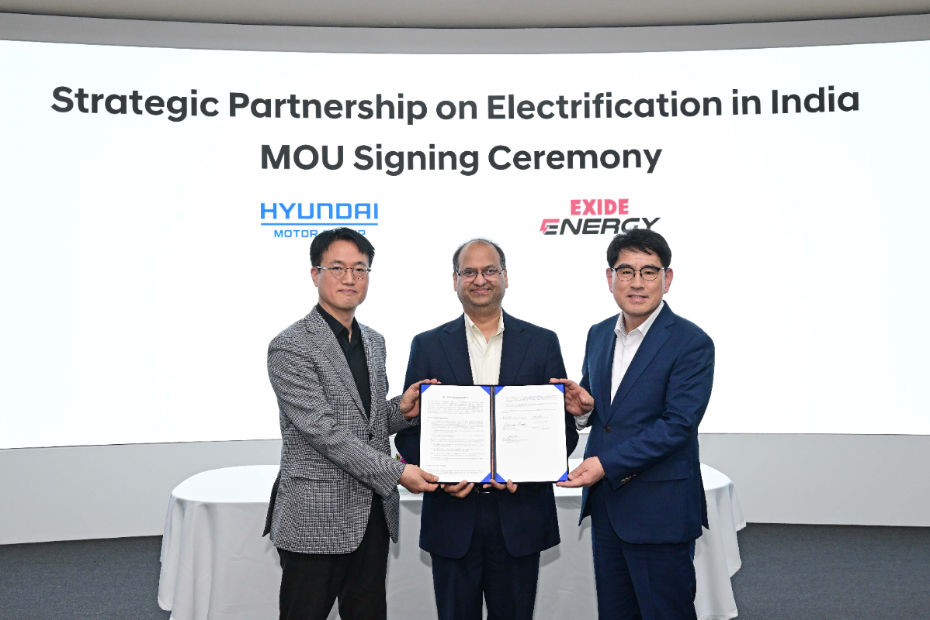Hyundai-Kia Set To Localise EV Battery Production, Partner With Exide Energy
Modified On Apr 08, 2024 12:31 PM By Ansh
- Write a comment
The production of EV batteries at home can bring down their input costs, making electric vehicles more affordable

-
Local production of EV batteries will focus on lithium-iron-phosphate (LFP) batteries.
-
This partnership will help both Hyundai and Kia to make their upcoming EVs more affordable.
-
Both carmakers are planning to bring more EVs like the Hyundai Creta EV and Kia EV9.
Hyundai and Kia are preparing to enter the affordable mass-market EV space in the country, with models priced below Rs 20 lakh (ex-showroom). For the same purpose, the Korean carmakers have signed a memorandum of understanding (MoU) with Exide Energy Solutions, a battery manufacturer in India, to localise the production of EV battery packs.

While India-centric, this is a global partnership. The MoU was signed in South Korea where Heui Won Yang, president and head, Hyundai Motor and Kia’s R&D Division, Chang Hwan Kim, head, electrification energy solutions, Duk Gyo Jeong, head, electric vehicle parts purchasing sub-division, and Mandar V Deo, managing director and CEO, Exide Energy, were present.
Also Read: Watch: 5 Reasons Why The Kia EV9 Electric SUV Will Cost Nearly Rs 1 Crore
With this partnership, Hyundai and Kia will be able to locally produce electric vehicle batteries with a focus on lithium-iron-phosphate (LFP) batteries for their future electric vehicles. As of now, these two brands have a total of 3 EVs in India namely Hyundai Kona, Hyundai IONIQ 5, and Kia EV6. For now, both are planning to bring more international EVs to the country, like the Kia EV9 full-size electric SUV.

With the localisation of EV batteries, both Hyundai and Kia will be able to make battery packs for their upcoming products at a much more affordable price, which will in turn reduce the price of its future products. We’re expecting localised electric cars like a Hyundai Creta EV, and maybe an all-electric Kia Carens MPV as well, by 2026. Which upcoming Hyundai-Kia EV are you excited about? Let us know in the comments.















